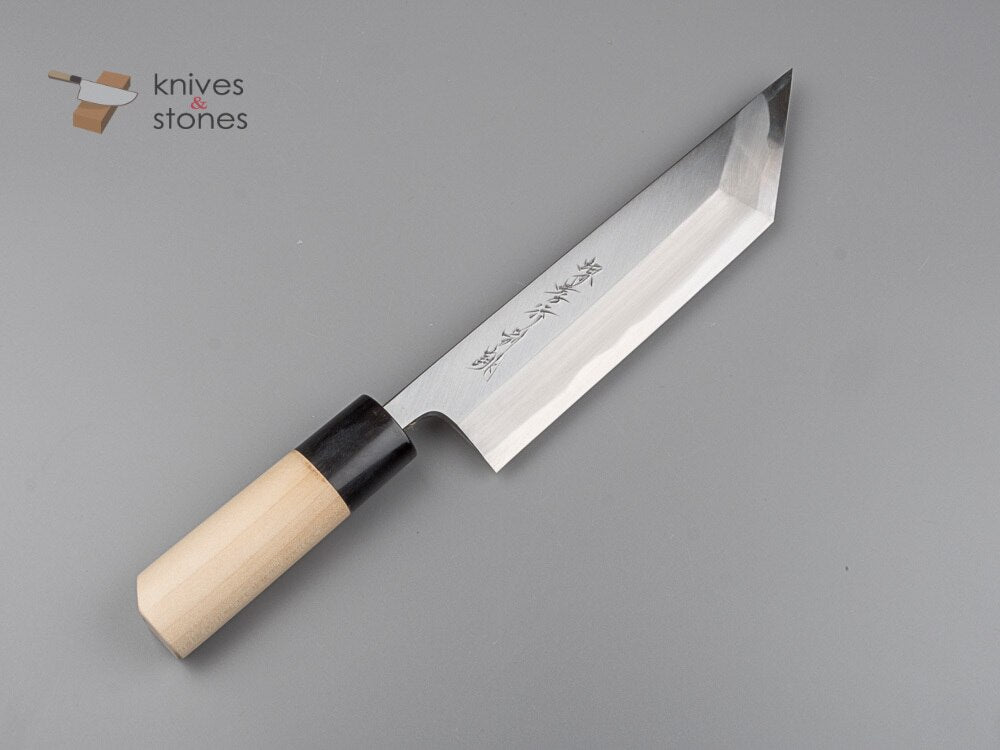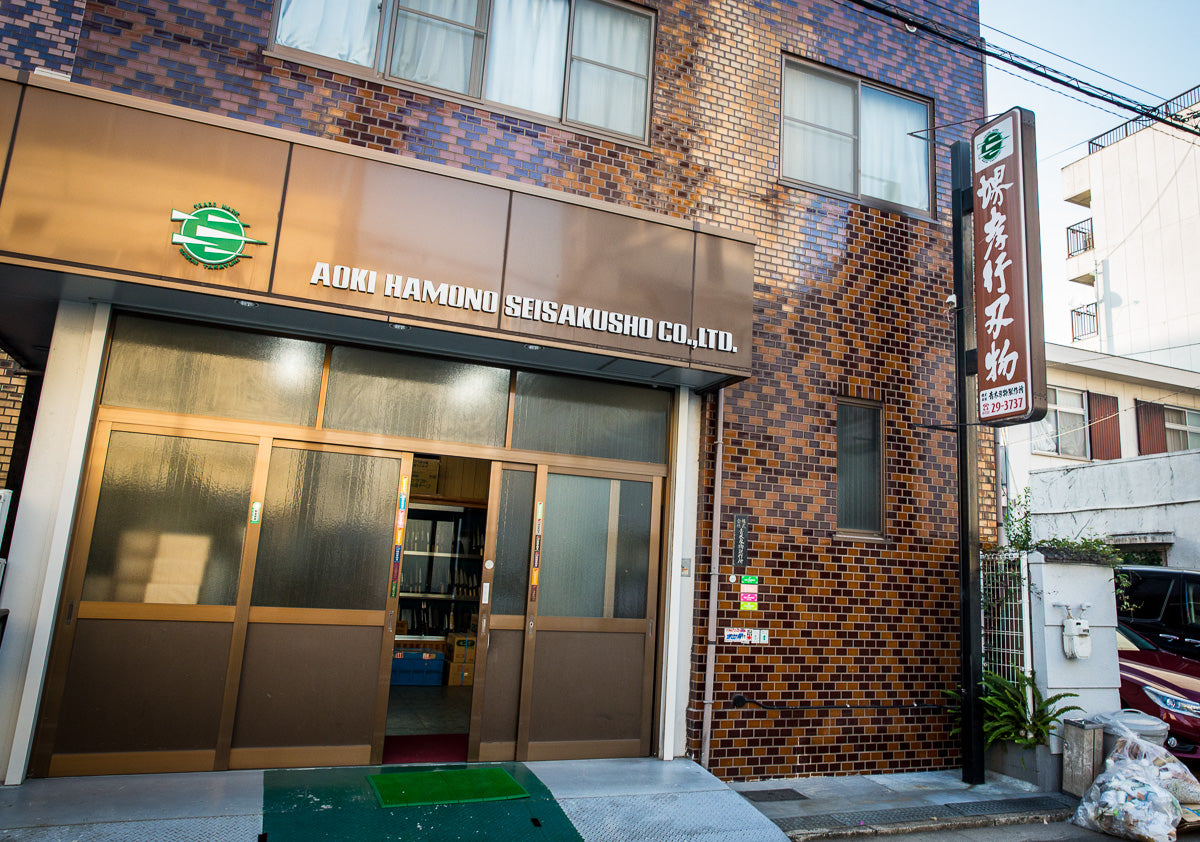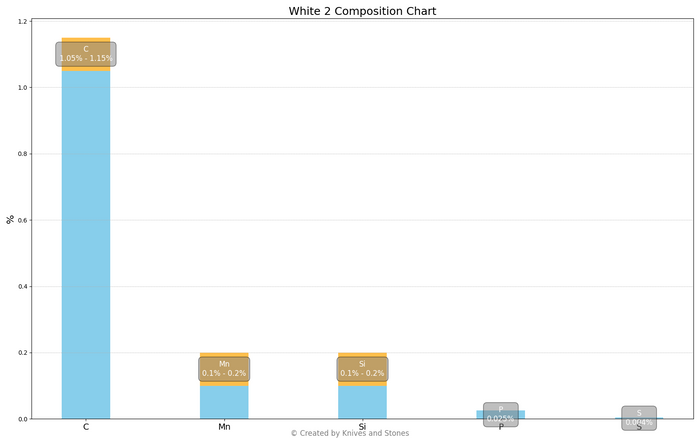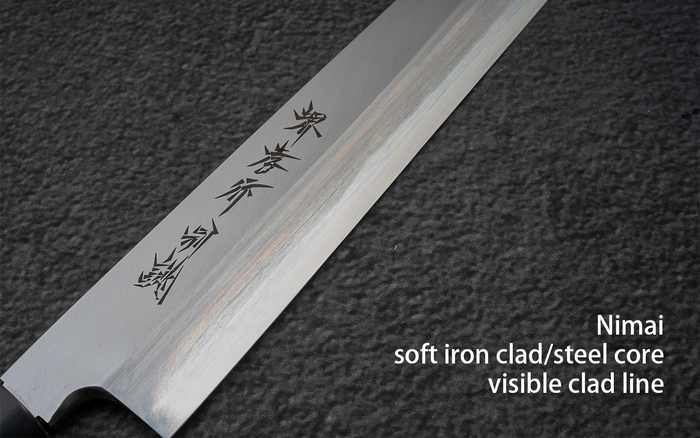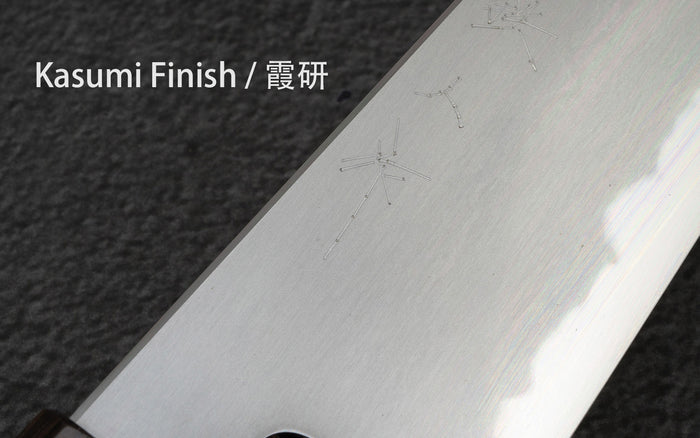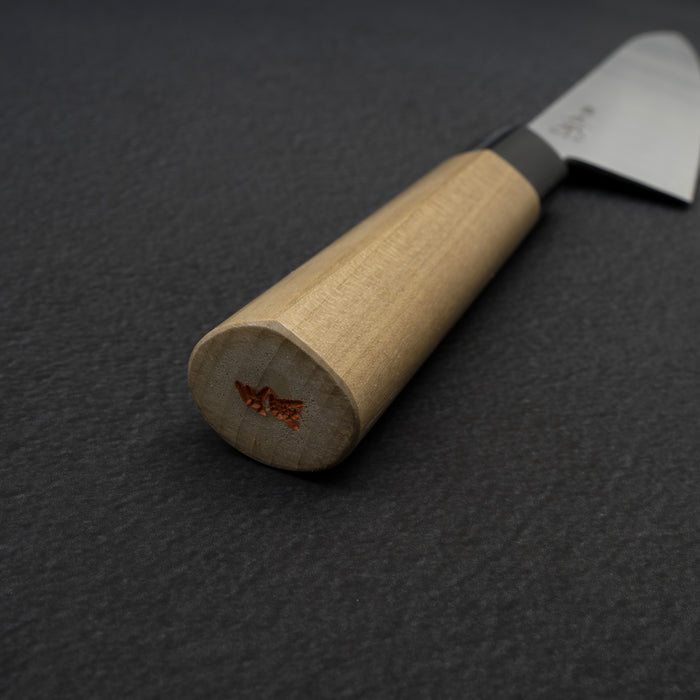Sakai Takayuki | 庫存單位:
ST_TOKU_EDOSAKI180
Sakai Takayuki Tokujou Edo Saki 180 mm(7.1 吋)白色 2 碳鋼
正常價格
$9,659.00
單價
/
不可用
Sakai Takayuki Tokujou Edo Saki 180 mm(7.1 吋)白色 2 碳鋼 已缺貨,一旦有貨就會出貨。
無法載入取貨日期
Detailed Specifications
| Line | 堺孝行 特上白二 |
| Bevel Type | 單面刃 |
| Weight | 184 g | 6.5 oz |
| Edge Length | 183 mm | 7 13/64″ |
| Heel Height | 39 mm | 1 17/32″ |
| Width @ Spine | 5.3 mm | 13/64″ |
| Width @ Mid | 4.2 mm | 11/64″ |
| Width @ 1cm from Tip | 1.8 mm | 5/64″ |
| Steel | 白二/白紙二號 | 碳鋼 |
| Blade Construction | 二枚軟鐵夾鋼 |
| Hardness (HRC) | 60 - 64 |
| Surface Finish | 霞 |
| Handle | D型朴木 黑色口輪 |
| Region | 堺 |
| Best for |
|

| Pros | Cons |
|
|
|
Care Instruction
- Don't cut hard things! Japanese knives are brittle so bone hacking is a NO NO!
- Wash with neutral detergent after use, and wipe dry;
- Please don't wash knife with dishwasher, it will damage the wood handle;
- Be careful not to leave the knife close to a heat source for a long time;
- It is a lot more dangerous to cut with a blunt knife than a sharp knife!
- It is best to sharpen a Japanese knife regularly on a waterstone. Error: Steel nature unknown

